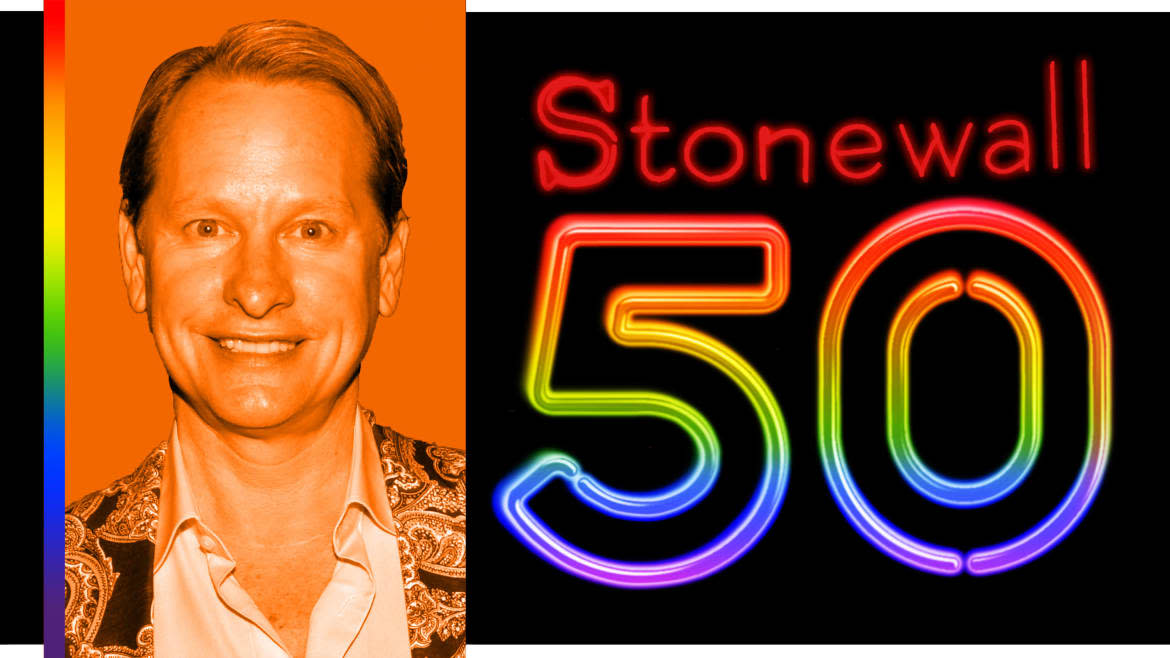Carson Kressley: ‘We Owe Stonewall’s Rioters a Debt of Gratitude, and Remember The Diversity They Represented’

In this special series, LGBT celebrities and public figures talk to Tim Teeman about the Stonewall Riots and their legacy—see more here.
Carson Kressley is a TV personality, actor, and designer.
When and how did you first hear about the Stonewall Riots?
I think like many people I didn’t hear about them when I was young because gay culture was not reported by the media, or taught at school.
I needed to move to New York City and be part of gay culture to learn about Stonewall in my twenties. I learned about it from my community and peers. Elders. The generation above me had been decimated by the AIDS crisis, and I was lucky to have mentors who could teach me about such a seminal moment in our history.
I moved to Greenwich Village at that time in the early 1990s when the area was the epicenter of the gay community, just as it was starting to move north towards Chelsea.
The Stonewall Riots Weren’t New York City’s Only Queer Uprising
I remember walking past the Stonewall and seeing its commemorative plaque. The impact for me was lost on my youth. You see a plaque, think “That’s great. Something really important happened here,” but you don’t really feel the gravitas until you do more research and educate yourself on who was there and why it happened, and why it became a watershed moment in not just gay culture but American culture.
Something subversive and counter-cultural happened there; a loud and visible moment when we took the matter of our rights into our own hands.
What is their significance for you now?
Now I’m older and wiser, haha. It wasn’t a bunch of people waving rainbow flags and saying, “We’re gay, isn’t that great?” This was a matter of life and death, a reaction to police brutality. These demonstrators are people we should be grateful to. Literally every letter in LGBTQ, and people of color, found a home at the Stonewall Inn. They’re the ones who led the uprising, who said, “We’re marginalized people, we have human rights, we will not be oppressed any more.” We owe a debt of gratitude to those people, and remember the diversity they represented.
What would you say to the demonstrators today?
I would just say thank you, thank you, thank you. You paved the way for me to be able to get married and to be safe, to not be brutalized, or jailed or criminalized for who I choose to love. I don’t think any words can express the amount of gratitude that we should all have for those people who started us in the right direction and on the right side of justice for the LGBTQ community.
How far have LGBT people come since 1969?
When you read about the history of queer people in America and what was going in the 1960s—when being gay was criminalized—things seem unbelievable nowadays. But they were very real not that long ago, within my lifetime. We have made tremendous strides, and lost some ground. Overall we should be so grateful to this group of people and all our LGBTQ ancestors. There is still a lot of homophobia and prejudice and inequality to work on. We’re fortunate to have such a great foundation set by the people at the Stonewall Riots.
What would you like to see, LGBT-wise, in the next 50 years?
Often people say not to worry about LGBTQ issues, that everyone has the same rights and not give it a second thought. But, as we become more integrated into the mainstream, we must remember that we are a strong and resilient community and be proud of that.
We take care of ourselves and our own, whether it’s the Stonewall Riots or dealing with the AIDS epidemic and the government’s lack of dealing with that scenario. That’s what Pride means to me: look how far we’ve come. We did that with our community and allies, and we should be very proud of that.
That kind of grassroots community organization is what has always propelled us forward, and I think that can be even stronger in the future as our base of allies grows as well.
Got a tip? Send it to The Daily Beast here
Get our top stories in your inbox every day. Sign up now!
Daily Beast Membership: Beast Inside goes deeper on the stories that matter to you. Learn more.

